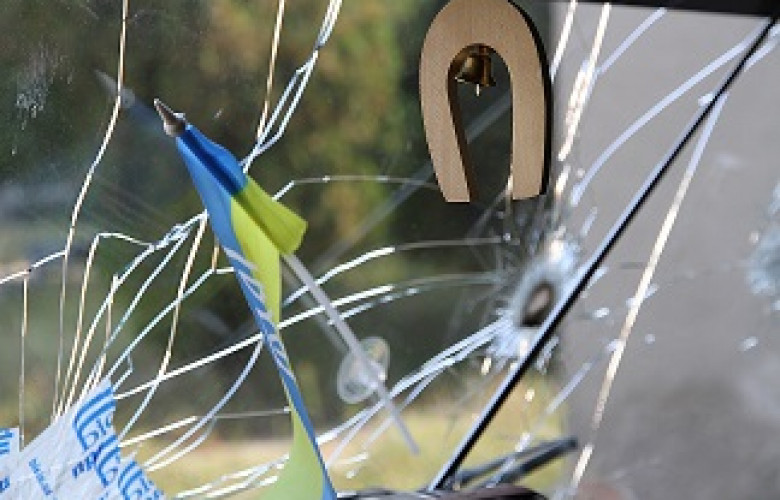Putin believes that time is on Russia's side - and, sadly, he has a point
Ian Hill
2024-02-16
RUSSIA
DEFENCE AND SECURITY
This article first appeared on The interpreter, published by the Lowy Institute

The political squabbles in the United States and Europe over continued aid to Ukraine epitomise the wider problem facing Kyiv’s backers: how to sustain popular, and thus, political support to continue backing what may prove a long war.
It is now two years on from Moscow’s February 2022 invasion – far longer, if the 2014 Russian annexation of Crimea is considered the starting point. The eventual outcome depends on the resilience of the warring parties, shaped in turn by their respective willpower and capacity to sustain the conflict.
Neither Russia’s nor Ukraine’s resolve is in doubt. The risks, however, are increasingly on the Ukrainian side, in terms of capacity to carry on fighting.
Kyiv is running desperately short of equipment and munitions – especially artillery shells but also air defence and electronic warfare equipment. It also needs external support to keep its economy afloat. This is a key point of weakness for Kyiv – and there’s not a clear path to a sustainable future, short of eventual accession to the European Union.
The EU’s belated agreement this month on a four-year, €50 billion support package for Ukraine will help. But Kyiv is heavily dependent on the United States for military materiel. So it’s particularly worrying that a US$61 billion military assistance package for Ukraine remains stalled in Congress, amid wrangling over border security and growing Republican scepticism over aid for Kyiv.
Uncertainty over the implications of November’s US presidential and congressional elections, the attention devoted to the Israel-Gaza conflict, and risk of wider war in the Middle East, will all worry Kyiv about the staying power of its Western supporters.
Meanwhile, under pressure on the battlefield, and with uncertain Western support prospects, domestic politics has returned to Kyiv. Notably, President Volodymyr Zelenskyy has fallen out with his military leadership, with a counter-offensive largely stymied last year, leading to the replacement of popular Army commander Valerii Zaluzhnyi.
Kyiv’s travails are, regrettably, good news for Moscow.
They reinforce Vladimir Putin’s belief that time is on Russia’s side: that Western support for Kyiv will inevitably weaken, while growing Russian military pressure on its smaller neighbour will in due course wear Ukraine down.
Unfortunately, he has a point.
Neither side has disavowed their declared war aims.
For Putin, long obsessed with Ukraine, this means bringing Kyiv to heel, and back firmly back within Russia’s sphere of influence.
Meanwhile, Ukraine, drawn by Russian aggression into an existential struggle to maintain its independent and viable statehood, is determined ultimately to recover all its territory currently claimed by Russia.
Neither Ukraine nor Russia currently look to be in a position to achieve their objectives fully. But nor are they ready to stop fighting and negotiate, except on their own terms.
On the battlefield in eastern Ukraine, the outlook isn’t good for Kyiv.
Beleaguered Ukrainian forces, short of artillery shells and other materiel, find themselves outnumbered and outgunned, while Russian missiles, drones and electronic warfare capabilities are exacting their toll.
One bright spot for Ukraine is in the Black Sea, where Ukraine has been able to reopen vital maritime trade routes, and take the war to Crimea through hybrid means.
But elsewhere along the long front, the situation is grim for Ukraine. Russia is making grinding progress, albeit at horrific human cost. In an attritional war, such gains may be marginal, but have a cumulative effect.
Meanwhile, in contrast to Ukraine’s procurement difficulties, Moscow has massively increased defence spending, up over 30 per cent this year. This contributes to the unexpected resilience of the Russian economy. It’s underpinned by still-strong hydrocarbon revenues, notably from China, India and Türkiye, despite Western sanctions. Russia has cranked up domestic production of military equipment and materiel, looking to make up its huge losses over the past two years. It’s benefited from supplies of dual-use technologies from China, ammunition and missiles from North Korea, and drones from Iran.
At home, the Putin regime remains entrenched, underpinned by a mix of pervasive propaganda and repressive domestic controls, deterring open dissent.
This doesn’t mean the stability of the regime is assured: the slow and hesitant initial Kremlin response to the rebellion last June by Wagner boss Yevgeny Prigozhin suggested a brittleness in the power structure. And the Kremlin’s fostering of a tame ostensible rival for Putin in the March presidential election, in the form of unknown parliamentarian Boris Nadezhin, has backfired. The unexpectedly large public support Nadezhin garnered for his now-disqualified candidacy pointed to underlying discontent, and amounts to a silent anti-Kremlin protest.
Moreover, Russia’s increasing shift onto a war economy footing carries costs – in terms of fuelling inflation and diverting resources away from infrastructural investment and social spending.
But none of this will stand in the way of Putin’s re-election for a fifth term as president, nor affect Moscow’s approach to the Ukraine war. It will, though, have jangled nerves within an insecure ruling elite.
This will be a tough year ahead for Ukraine.
Defending its current battlefield position, conserving and rebuilding resources, while trying to undermine Russian capabilities through asymmetric warfare, especially in Crimea, may be Ukraine’s most realistic option.
The problem is that lack of progress on the battlefield risks encouraging impatient Western supporters to urge Kyiv to call time on the fighting and strike a deal with Moscow.
This might lead to a ceasefire – for now. But any compromise would inevitably entrench Russia’s territorial gains, rewarding its aggression and undermining Ukraine’s sovereignty – and risk emboldening Moscow in the long term.
That hardly seems an outcome that would serve NATO’s, let alone Ukraine’s, interests.
Membership
NZIIA membership is open to anyone interested in understanding the importance of global affairs to the political and economic well-being of New Zealand.